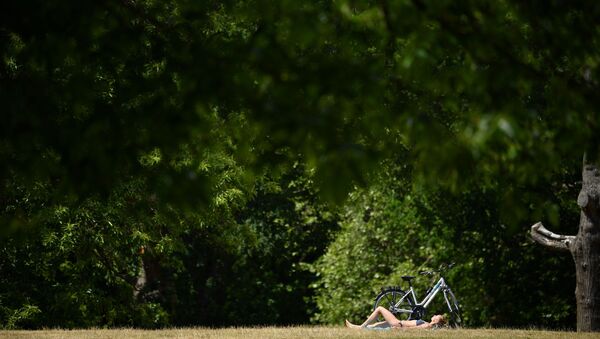Dr Jo Daniels, Senior Lecturer in the Department of Psychology, at the University of Bath, explains what the psychological impact of the coronavirus lockdown on high-risk groups will be and reflects on whether the public is really ready to resume life as normal.
Sputnik: How much of an impact psychologically will the coronavirus lockdown have had on high-risk groups?
Dr Jo Daniels: I think that it will potentially be quite significant for the shielders. We know that half of the people who have got physical health problems will suffer from depression and anxiety in general, and twenty-five percent of those people also struggle with health-related specific anxiety.
Given the context of the health-related pandemic and the threat to their health which is very real, I would expect a lot of people to be struggling with anxiety. We know that with a lot of people, if they have been indoors for a long time; we see isolation, we see low mood, we see boredom and we see frustration, and all of these things mean that it is harder in the long term.
Sputnik: Has the British government’s advice to vulnerable people ahead of the loosening of lockdown restrictions been clear enough?
Dr Jo Daniels: I think that the guidance provided has been unclear in places. While other groups have been told precisely what to do; the shielders have been very much based on their assessment, whether they should go out or not.
Certainly from the reports that I have received back; some people actually don’t want to go out, because they feel that the risk is so high, and they are anxious, and certainly further guidance would be more helpful than relying on the science, which at the moment is a bit of unknown in relations to the shielders, all we know is that the mortality rate for these groups are much higher than with the other groups.
Sputnik: Could lower risk members of the British public and their consumer behaviour also be altered in the aftermath of the Coronavirus lockdown?
Dr Jo Daniels: As we saw in Italy when they re-opened the shops, you could see that people were queuing up and going in again, and really demonstrating that group behaviour and group movement, but for some people who probably are anxious, they are likely to shop online and to try and find other ways of acquiring things they need.
It will be interesting to see how it works in the UK. Certainly, we’ve seen that a lot of people in the UK are not adhering closely to the guidelines, and the two-metre social distancing rule and I predict that they might not adhere to that when it comes to shops opening today.

